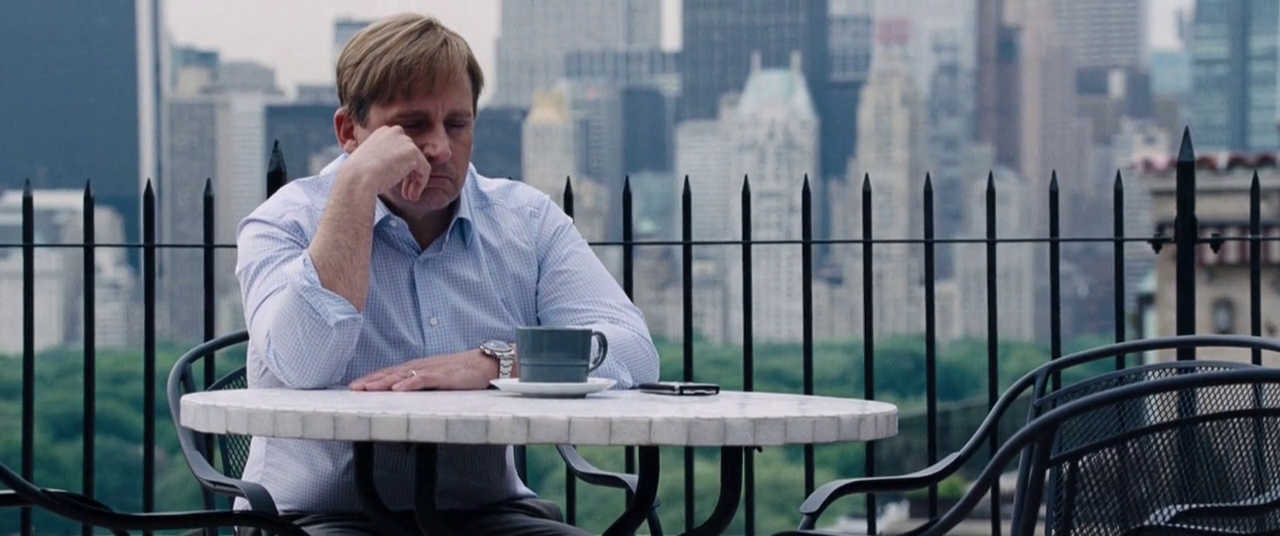While an honest and valuable film that takes a look at the under-explored causes of the 2008 Financial Crash, the film's final judgment is rather thin and unsatisfying and reminds us what Scorcese accomplised with his Wolf of Wallstreet.xxxxxxxxxxxxxxxxxxxxxxxxxxxxxxxxxxxxxxxxxxxxxxxxxxxxxxxxxxxxxxxxxxxxxxxxxxxxxxxxxxxxxxxxxxxxxxxxxxxxxxxxxxxxxxxxxxxxxxxxxxxxxxxxxxxxxxxxxxxxxxxxxxxxxxxxxxxxxxxxxxxxxxxxxxxxxxxxxxxxxxxxxxxxxxxxxxxxxxxxxxxxxxxxxxxxxxxxxxxxxxxxxxxxxxxxxxxxxxxxxxxxxxxxxxxxxxxxxxxxxxxxxxxxxxxxxxxxxxxxxxxxxxxxxxxxxxxxxxxx
This was a perfectly watchable film, even a pretty good one. It had some funny parts, an interesting documentary-like approach. It was well acted, with casual performances by its actors that suited the form quite well. And it focused on a theme that needs a lot more attention and succeeded to make the 2008 Financial Crisis more comprehensible. Fair enough, there's not much to find fault with.
But, looking a bit more closely, the morality and ethical position put forward in the film doesn't really work. The point seems to be that we shouldn't celebrate the ability to make money on predicting the financial crash because that profit comes from the suffering and dispossession of millions. The film is explicit about this at least twice (e.g., when Brad Pitt's character chastises the two younger 'Brownhole' investors). The problem is that the end of the film seems a bit rushed and a bit confused, or at least contrived to support this ethical position: we are never quite sure as the film ends (until we are shown exact figures on a whiteboard or they are spoken) what really is going on: did they profit, did they lose, what's the deal? In the end, they profited big-time. But you would hardly know it because of the intentionally subdued way that the profiteering is treated in the film (which is really the only indication that there is an issue of morality and ethics involved in their behavior, i.e., since it isn't portrayed as raucous celebration but as funereal reticence). But that's the problem: that rather than have the point somewhere in the course of the film, the point is left for one to simply intuit from the tone of the film, which while it still succeeds at something, leads to an incredibly neutered, almost imperceptible critique. One gets the impression that the critique has been intentionally toned down to the point where the film can stand on its own without it, becoming then only a vehicle for conveying the simple history of the genesis of the financial crisis, but that maintains the critique in rarefied form for keen observers and critics who might look for it as an indication of the film's authenticity.
The real story with this film, though, is with the film that it is not: Wolf of Wallstreet. Without question, it borrows alot from this film and seems like it was conceived from out of its model. Really, the entire style of the film is borrowed from moments of that film that are documentaryesque: the initial sequence, the sequence when Di Caprio interrupts his speech to talk directly to the camera and to the audience. These moments and their comedy are what form the basis for this film that is really an extended version of those moments combined with an Office-like style of real-time, documentary-like comedy. Even the music is borrowed from it. However, in the case of Wolf of Wallstreet, rather than a populist, superficial moral fable ('don't profit from dispair') Wolf of Wallstreet accepts the moral complexity and ambivalence of the entire charade that is Wallstreet banking. Scorcese knew that its just too simple to pass judgement on these people, and that what one needs to really reflect on is the way in which, despite that we know the illegality and outrageousness of everything these people do, despite everyone they harm and how focused on themselves they are, despite it all, there is something redeeming in the fact they they've made it, have been able to transcend the ordinary and reach the pinnacle of existence, of that place where creativity and lawlessness coincide. Its the American dream to escape the misery of the dirty, smelly subway ride, to dream big and hope for that one chance to make it on our own terms. To discount that and to just moralize really doesn't mean that much. To reflect on how our own dreams work against us: that's a much harder thing to do. But that is what Wolf of Wallstreet was able to achieve. The Big Short, in contrast, not so much.
